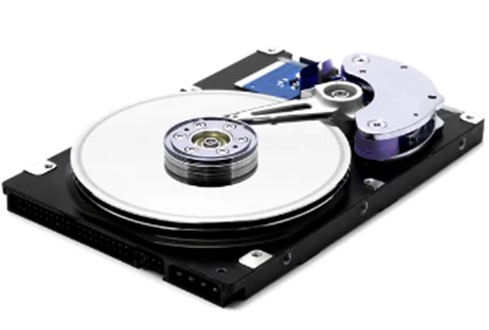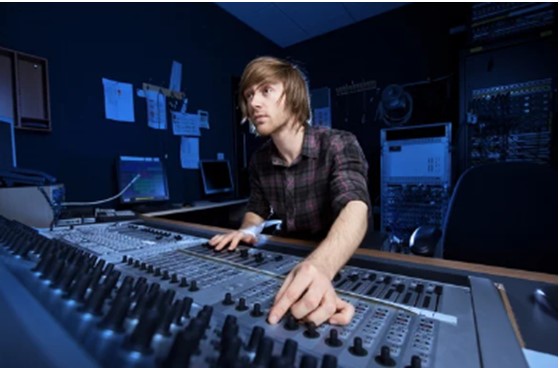Are you stuck comparing Studio One vs Logic Pro trying to find the best digital audio workstation?
You’re not alone! With so many DAWs out there, thousands of musicians and producers weigh their options every day.
I know this can be exciting but also stressful, as you’re about to spend your hard-earned money on a program you’ll likely stick to for years to come. Making the right choice is crucial.
But you can breathe easy now, I’m here to help you figure things out.
Below, you’ll find a list comparing both programs under several different categories that will hopefully clarify where each one shines.
The 6 categories we’ll be comparing Studio One vs Logic Pro are:
Keep reading to see which DAW comes out victorious!

You don’t have to break the bank for quality
This is probably one of the first things most people consider when looking into buying a new DAW. After all, these do not come cheap, so it’s really important to ensure that we’re getting the most value for our money.
While there are certainly some considerable differences between both programs, it would be hard to say that they’re worth $199. That’s right, one of these DAWs is twice as expensive as its competitor. Can you guess which one it is?
Exactly! Studio One.
There are many reasons for this, one of them being the expanded compatibility and flexibility it offers over Logic Pro, but we’ll get to that later.
This program boasts a whopping price of $399.95 for the Professional version, whereas Logic Pro can be purchased for $199.
That being said, there are cheaper Studio One versions you might want to consider if the Professional version’s price seems too steep. But bear in mind that cheaper versions will have a limited range of options and might not be the best choice for everyone.
This is where Studio One truly shines.
You probably left the previous section feeling a little disappointed with how expensive both DAWs are, and it’s totally understandable.
But what if I told you that the choice might be out of your hands?
Unfortunately, Logic Pro is only available to Mac users, so trying to run it on Windows is out of the question. Studio One, on the other hand, is much more versatile and can be used on both operating systems effortlessly.
Now, this does not mean that you’ll have to pay almost $400 for Studio One if you have Windows. There’s a whole world of DAWs out there you can use as alternatives. Moreover, if you don’t care much for loop libraries or added bells and whistles, the Artist version of Studio One might be enough for you.
It’s $300 cheaper!

If you’re reading this with a full hard drive, this definitely interests you.
With every passing day, programs become larger and larger in size. A decade ago, 500 GB would last a lifetime, but these days, it’s barely enough to house Windows 11 and some editing software.
All DAWs take up space on your computer’s storage, there’s just no way around it. But one thing you do have control over is how much they actually take.
Logic Pro has been known to be rather heavy, requiring a whopping 72 GB to install all its features, loop packages, and plugins.
Studio One, on the other hand, is a little more forgiving on your storage space, requiring only 32 GB for a full installation.
This may not sound like a big deal, but when you take into consideration that you’ll probably be buying and downloading several GB worth of third-party plugins during your production career, it’s undeniable that you’ll need all the available space you can get!
This one’s all about personal preference. Let me tell you why.
In terms of the number of stock plugins included with each DAW, there’s really no big difference, especially considering that most of the time, you’ll hardly ever use anything other than EQ and compression.
Both programs have fantastic options and will be able to meet most of your production needs for the years to come.
Some people claim that they can hear better sound quality from Logic Pro plugins, whereas others say that those included with Studio One are much more intuitive.
That being said, remember that you’ll only get the full range of stock plugins with Studio One if you buy the $399.95 professional version. And while that’s expensive, on the upside, the storage space you’ll need is half that of Logic Pro.

I’d be lying if I said that either one of these DAWs can be professionally used right out of the box. After all, not unlike every other software out there, there’s a learning curve involved.
That being said, both interfaces are visually attractive and very intuitive, so you won’t have a hard time learning the ropes.
If you’re coming from another DAW, like Cubase or FL Studio, the general layout and configurations might not feel natural right away, but you’ll get used to the workflow much sooner than with other, more complex alternatives.

Lastly, let’s discuss stability.
This is not as related to the DAWs themselves as much as it is to the operating system you’ll be using them in.
Let me elaborate.
There’s a lot of thought that goes into creating an operating system like Windows or macOS, and developers try their best to release a stable version from day one.
However, this is not always possible. There will always be something to fix.
Having said that, Windows will always be a lot more prone to crash or freeze while running programs because it has to cater to thousands of different systems and manufacturers.
macOS, on the other hand, is specifically designed to work on Apple products, so there are not as many loose ends to tie upon release.
Based on this argument, Logic Pro will always be more stable than the macOS or Windows version of Studio One simply because of the short range of systems it’s been designed to work with.
Now, I’m not saying that you should expect Studio One crashes every 5 minutes, but if stability is something you value greatly, this is certainly something to consider.
Studio One vs Logic Pro. Deciding which is better in this day and age can be a challenging task. They both offer great features and shine in different areas. And while options are always great, sometimes they can also create a lot of stress.
I hope this piece has helped you better understand what makes them special and how they can individually meet your production/recording needs.
There are no right and wrong answers, only factors to consider and personal preferences. Take some time to think about what you’re looking for in a DAW and make the decision based on that.
I’m sure that, whatever you choose, you won’t regret it.
Thank you so much for sticking with me all the way to the end. If you found this article helpful, you’ll be glad to know that we upload new content weekly. Please be sure to check out all our other incredible resources below to become a Tech Detective yourself!
Best of luck to you.